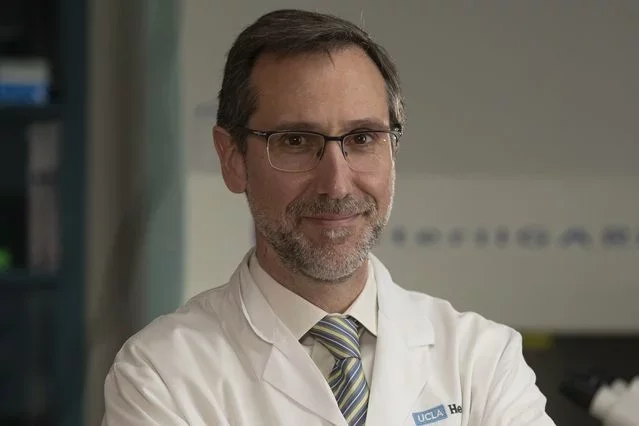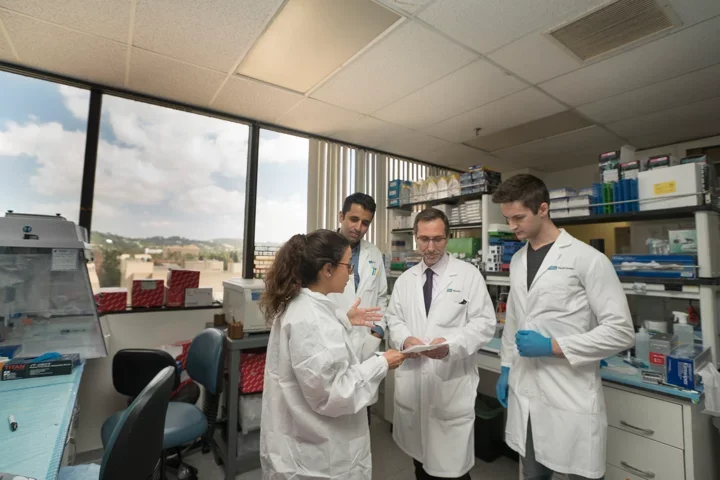Cancer Immunotherapy
The Future of Cancer Immunotherapy

Antoni Ribas, MD, PhD
Director, Parker Institute for Cancer Immunotherapy Center at UCLA
Groundbreaking Interventions
Dr. Antoni Ribas develops groundbreaking immunotherapies and interventions that mobilize the immune system to fight cancer. By studying the cellular mechanisms driving—or inhibiting—an immune response to cancer, Dr. Ribas uncovers techniques to activate our natural defenses.
Dr. Ribas’s discoveries have helped many patients fight cancer when nothing else worked.
Giving T Cells a "Green Light" to Fight Cancer
To allow T cells to fight cancer, Dr. Ribas tried blocking the programmed death-1 (PD-1) protein, a receptor cancer manipulates to evade the immune response.

He found that pembrolizumab—a drug developed by Merck to block PD-1—helped many patients fight their cancer. Read more in PD-1 Blockade Induces Responses by Inhibiting Adaptive Immune Resistance, published in Nature.
However, PD-1 blockade did not help all patients, and Dr. Ribas wanted to know why.
- Pembrolizimab worked best when T cells had flocked to the tumor site, giving PD-1 blockade plenty of “fighters” to release. Read more in High Response Rate to PD-1 Blockade in Desmoplastic Melanomas, published in Nature.
- Pembrolizimab failed when T cells ignored the tumor site, leaving PD-1 blockade with no “fighters” to release. Read more in Mutations Associated with Acquired Resistance to PD-1 Blockade in Melanoma, published in the New England Journal of Medicine.
Bolstering Cancer Immunotherapies with Oncolytic Viruses
Dr. Ribas combined pembrolizimab with an oncolytic virus, injected at the tumor site. He believed the virus—a foreign invader—would lure T cells toward cancer tumors and boost the efficacy of PD-1 blockade.
The combined therapy increased T cells at tumor sites and stimulated a complete response in 33% of patients. Read more in Oncolytic Virotherapy Promotes Intratumoral T Cell Infiltration and Improves Anti-PD-1 Immunotherapy, the first phase 1 clinical trial report ever published in Cell.
With his sights set on optimizing cancer immunotherapy, Dr. Ribas plans to learn as much as he can by testing new treatments, including adoptive cell transfer therapy, and investigating the underlying immune system mechanisms that render treatments effective or ineffective.
How can we get the immune system to cure cancer?
Dr. Ribas wants to uncover the limits and potentials of the human immune system in the fight against cancer, a pursuit rooted in scientific understanding. When it comes to cancer, Dr. Ribas believes we can always know more about getting the immune system to fight back.